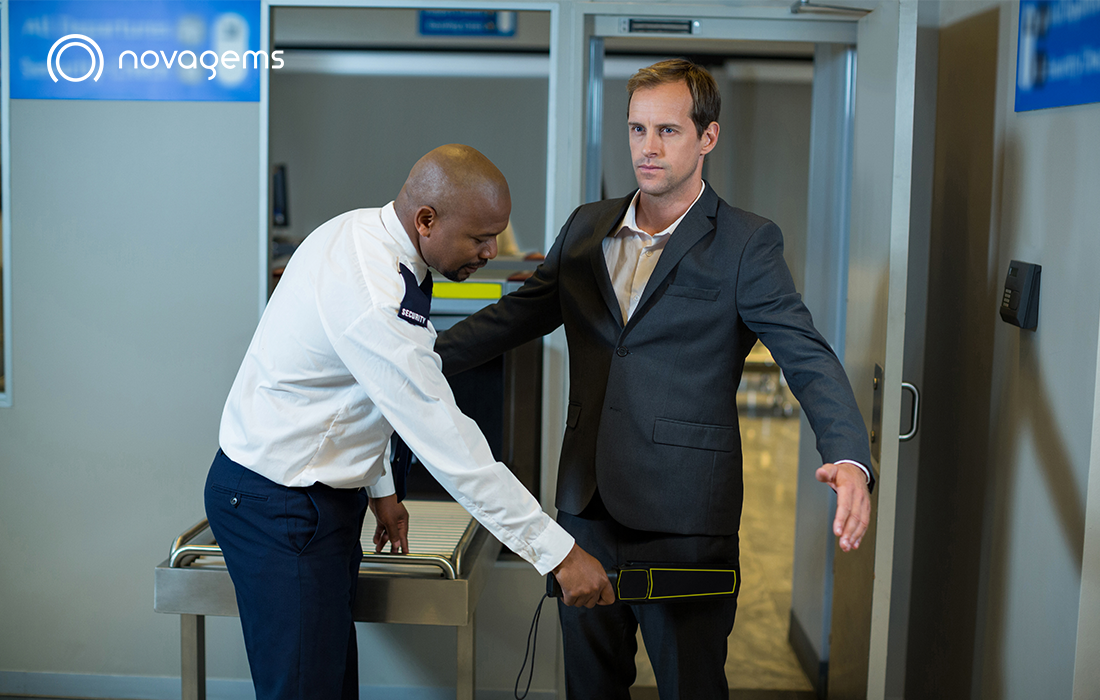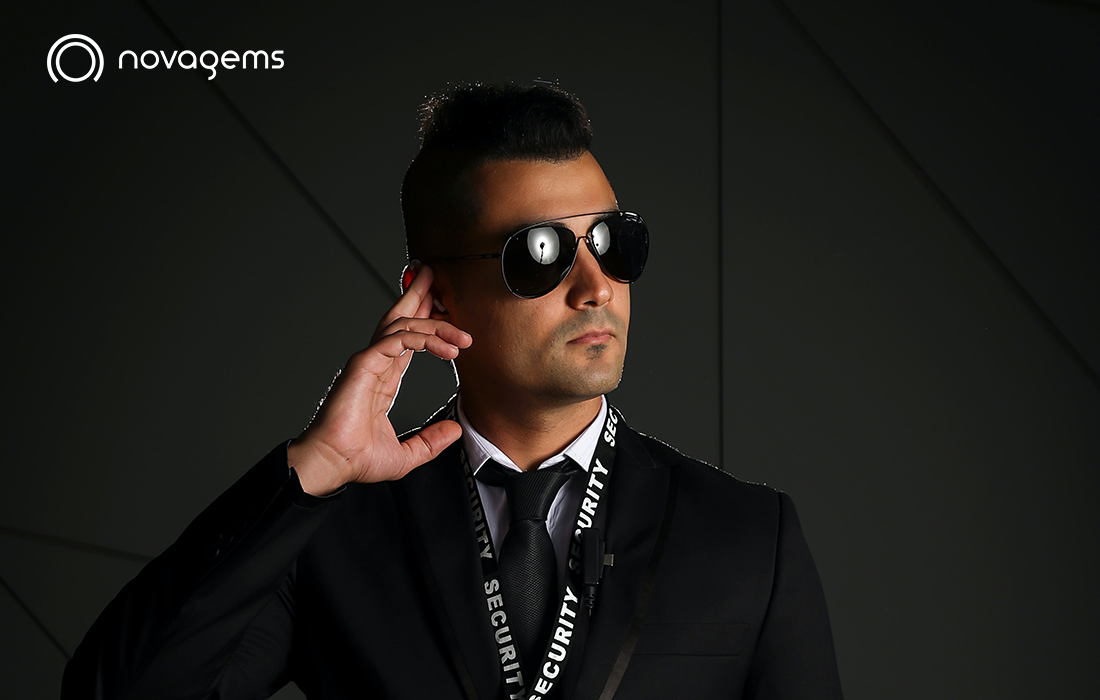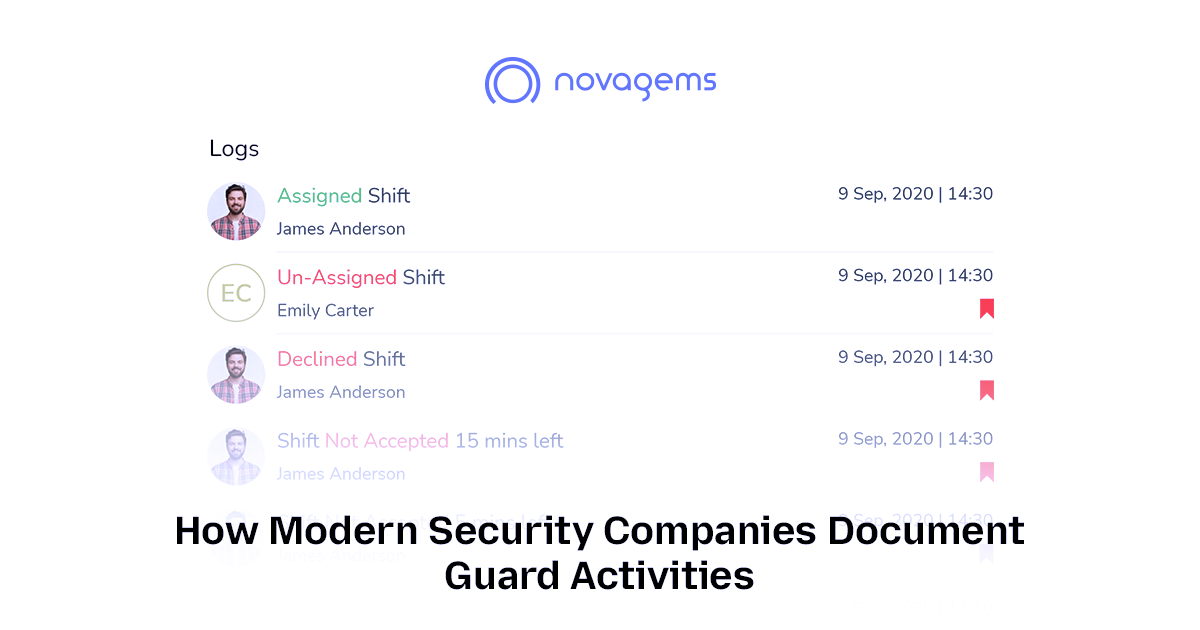Security Guard Vs Security Officer: Security Guard Management Solutions
Published on: Mon, Dec 13, 2021
Read in 9 minutes

In North America’s growing security industry, the titles “security guard” vs “security officer” are often used interchangeably. However, in practical terms—especially when it comes to hiring, responsibilities, licensing, and pay, they represent different roles.
Whether you’re a property manager in Toronto, a business owner in New York, or a professional looking to enter the security workforce, knowing the distinction between these two roles can help you make better decisions.
Key Takeaways
- A security guard is typically an entry-level role focused on protecting property and monitoring areas.
- A security officer often has supervisory duties, more training, and greater decision-making authority.
- The roles vary by region, job site, and company structure.
- Knowing the difference helps businesses hire smarter and professionals plan better career paths.
- Pay, licensing, and responsibilities are different , especially in regulated states.
Quick Answer: What’s the Difference?
A security officer typically holds more authority, training, and decision-making power compared to a security guard, who focuses more on patrol and surveillance tasks.
This difference matters, both for companies hiring the right personnel and for job seekers planning their career path in the security industry.
A security company is not just a bunch of guards delivering security services. Just like any other organization, a security company also has a hierarchy. If you run a security company, you must be aware of this hierarchy.
Besides the management and directors, these companies have security officers and security guards. Now, most of you might think that a security officer is just another term for a security guard, which is not correct.
If you are unaware of the difference between a security guard and a security office, we are here to explain it to you. So, let’s dive into it:
Who is a security officer?

A security officer is a manager that supervises a team of security guards. In most cases, they are ex-police or ex-military officers who take up the job of an officer in a security company. These officers manage large groups or teams of security guards and oversee their performance and conduct.
When we talk about managing the operations of security guards, there is a lot that security officers need to get done. They schedule guard duties, keep track of their shifts, record attendance, and communicate with them during emergencies.
Besides the management part, security officers can also train the security guards based on their skills and experience. They can guide them on what to do in dangerous situations and emergencies. They can also teach them how to use weapons for defense.
The experience and skills make a big difference between a security guard and a security officer. A security officer often carries out supervisory tasks and manages other guards. Their role is more strategic. Responsibilities include:
- Overseeing multiple guards or sites
- Creating security protocols
- Reporting to facility managers or law enforcement
- Managing incident response plans
- Ensuring compliance with regulations
Officers are usually:
- In full-time roles with benefits
- Required to undergo advanced training
- More involved in planning, auditing, and reporting
They act more like team leads or coordinators than frontline responders.
This is one of the most important decisions for companies, and it hinges on multiple factors, including site complexity, liability, and client expectations.
The responsibilities of a security officer include:
- Managing a group of security guards
- Training the security guards
- Keeping track of each security guard in terms of their shifts, locations, patrolling routes
- Send help to the security guards in the case of emergencies
For security companies and security officers, the management of guards gets challenging as their number grows. So, we recommend having a task management system in place.
At Novagems, we provide security companies with such a solution. Our guard task management system helps security officers keep track of the security guards through an app or system. They can share regular schedules, track the location of the guards, and generate performance reports with ease. The system allows you to get a lot done without physically meeting the guards all the time. It saves the day for security officers and managers!
Who is a security guard?

A security guard is someone at a lower rank than a security officer. Security guards work under the guidance and training of security officers. While security guards do not need strict training, the security officers train them as per the job requirements.
A security company can have many security guards deployed to different locations or sent on patrolling duties. They generally have to report to a security officer, manager, or a supervisor who keeps track of their shifts and performance. The responsibilities of a security guard include:
- Reporting to duty at the location and time assigned for them
- Delivering high-quality security services
- Reporting to the management in the case of emergencies
- Ensuring the premises and people are safe around them
- Using arms and weapons safely and responsibly
- Reporting to the security officer or manager daily
A security guard is responsible for observing and reporting activities in a defined area. This can include:
- Patrolling premises
- Monitoring CCTV feeds
- Checking for unauthorized access
- Assisting employees or customers
- Reporting suspicious activity
Most guards are stationed at retail outlets, apartment complexes, construction sites, events, or hospitals.
Guards are often:
- Hired via third-party security firms
- Paid hourly
- Licensed based on state or country regulations
They typically receive basic training, including emergency response, communication protocols, and observation skills.
When Should You Hire a Guard vs. an Officer?
This is one of the most important decisions for companies, and it hinges on multiple factors, including site complexity, liability, and client expectations. It’s not just about titles, it’s about understanding the security guard role versus security officer duties and when each is appropriate.
Choose a Security Guard If:
- You need to maintain a visible presence to deter petty crimes (like in retail stores or parking lots).
- Your location has low to moderate risk, such as residential buildings or gated communities.
- The job involves routine patrols, basic crowd control, or fixed post duties like checking IDs.
- You’re operating within a tight budget and need essential coverage without supervisory complexity.
The security guard role in these cases is centered around visibility, deterrence, and reporting.
Choose a Security Officer If:
- The site requires coordinated security operations, such as a hospital, airport, or large corporate campus.
- You need someone to supervise other guards, coordinate emergency responses, or create shift schedules.
- Your operations require incident reports, visitor tracking, or liaising with law enforcement.
- The client or insurer requires a higher standard of risk management or liability coverage.
In this case, security officer duties expand to oversight, documentation, and decision-making.
Training and Licensing Requirements (Canada & USA)
Training and licensing standards vary by province in Canada and by state in the U.S., but there are common differences when comparing the security guard role to security officer duties.
In Canada
Security Guard Licensing:
- Must complete a provincially approved training program (e.g., Ontario’s 40-hour mandatory program).
- Must pass a government exam.
- Required to undergo a criminal background check.
- First Aid and CPR certification is often mandatory.
Security Officer Roles:
- No separate “officer license” in most provinces, but:
-
- Employers often require additional in-house training, especially for supervisory roles.
- Some firms require experience plus leadership certifications.
- More extensive knowledge in emergency response, report writing, and conflict de-escalation.
In the United States
Security Guard Licensing:
- Varies by state. States like California, Florida, and New York require:
-
- Basic training (8 to 40 hours).
- Registration with the state’s licensing body (e.g., BSIS in California).
- Background checks, fingerprinting, and renewal exams.
- Some states like Texas allow armed guard licenses with additional firearms training.
Security Officer Licensing:
- Most states do not offer a separate license, but employers use the title for:
-
- Guards with supervisory or leadership responsibilities.
- Candidates who complete advanced certifications like crowd management, anti-terrorism training, emergency procedures, etc.
Security guard vs officers salaries
Security guards typically earn hourly wages, often through security service companies. Many guards do not receive benefits or consistent shifts.
Security officers, by contrast, often work full-time with benefits, and may be salaried depending on their employer. Their responsibilities include:
- Leading teams
- Creating incident reports
- Enforcing SOPs
- Communicating with stakeholders or police
- Performing compliance audits
As security officer duties expand, so does compensation.
Common Myths Debunked
Understanding the differences in the security guard vs security officer comparison means dispelling the common myths that confuse businesses and candidates alike.
Myth 1: They’re the Same Job With Different Titles
Not true. While some companies use the terms interchangeably, many differentiate:
- Security guards = task-focused roles (observe, patrol, report).
- Security officers = leadership roles with increased responsibility.
Myth 2: Security Officers Are Police Officers
No. Officers in private security are not police. They don’t carry the same legal powers, but may support emergency services through documentation or crowd control. Officers are generally more trained in protocols and emergency response.
Myth 3: The Title Doesn’t Matter
The title absolutely matters, especially in terms of pay, insurance coverage, and expectations during incidents. It can also affect how your team is perceived by visitors or clients.
Myth 4: All Security Guards Are Equal
False. The security guard role varies based on location, training, and industry. For example, a guard at a cannabis dispensary in Ontario may require a completely different licensing process compared to one at a hotel in Florida.
Myth 5: Anyone Can Be a Security Officer Without Experience
This is dangerous thinking. Assigning someone without training to officer-level duties opens the company up to legal risk. Many employers promote internally, requiring guards to gain experience before assuming security officer duties.
Conclusion: Which One Do You Need?
There’s no “better” role; only a better fit for your site, budget, and risk level.
- Security guards are best for entry-level security coverage, visibility, and general patrol duties.
- Security officers are ideal for leadership, incident management, and compliance-heavy environments.
The key is to align the right personnel with the right job expectations. If you’re managing a multi-site operation in Canada or the U.S., combining both guards and officers into a tiered system can help ensure efficient and compliant protection.
With this, the difference between a security officer and a security guard is clear. So, if you were looking for some information on security guards and security officers, we hope this helped. Stay tuned for more!
Get a Free Trial
Sign up For Newsletter
Latest Blog Posts
Get Started
Start being productive & grow your business
with Novagems





